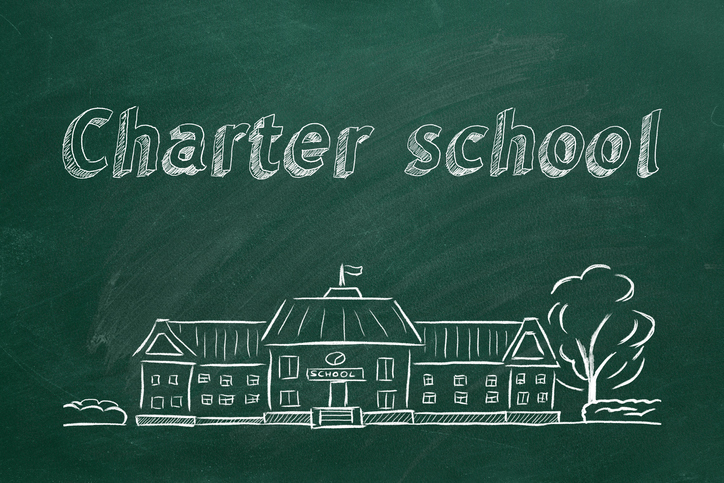Charter School Vs Public School – Your Complete Guide to Understanding the Differences and Similarities
By Brian Miller, Secondary Principal
 Charter schools first came into existence more than 25 years ago. It is within recent years, however, under former Secretary of Education Betsy Devos appointed during the Trump administration, that the discussion of charter schools vs. public schools has radically increased. These discussions have been leading many to question, what is the difference between charter school and public school? Which is better? And, perhaps even, why does it matter?
Charter schools first came into existence more than 25 years ago. It is within recent years, however, under former Secretary of Education Betsy Devos appointed during the Trump administration, that the discussion of charter schools vs. public schools has radically increased. These discussions have been leading many to question, what is the difference between charter school and public school? Which is better? And, perhaps even, why does it matter?
Charter schools and public schools are alike in many ways. For one, they are both held accountable to state testing and student achievement and are expected to be transparent and ensure equity. The big difference between charter and public schools, however, is that charter schools are tuition-free schools that are publically funded but independently run.What that means is, unlike public schools, charter schools are free from a lot of red tape, allowing for autonomy in their direction and daily teachings practices, providing a unique environment that is often directed by the local community rather than the state.
As a rule, charter schools have more autonomy; public schools have more authority.
Charter School Vs Public School – The Differences in Everything From Academics and Special Needs Services to Class Size and Teacher Pay
 Let’s start by getting one big question out of the way before we even start discussing the difference between charter and public schools. Is a Charter School Better than a Public School?
Let’s start by getting one big question out of the way before we even start discussing the difference between charter and public schools. Is a Charter School Better than a Public School?
No. Charter schools are not better than public schools. Nor are public schools necessarily better than charter schools. They’re just different. And depending on the need of your child, one might be a better fit than the other. It’s not a matter of one being better than another so much as it is about the differences that might make one better for certain students based on their individual needs.
When it comes to charter vs public schools, there are a few key factors that make them different:
Academics – Charter School vs Public School
Charter schools often have a reputation for higher test scores, which might suggest the possibility of stronger academics. This perception, however, is a bit misleading because unlike private schools, charter schools can control the types of students they serve, denying low-scoring students and accepting higher-performing students. This practice produces a misconception that charter schools provide a higher quality education, when in fact, overall, that’s not necessarily the case.
According to the US Department of Education, there is no evidence to support the claim that charter schools have a positive effect on students and learning. On the contrary, there has been substantial evidence that claims the opposite, that charter schools have a negative effect on students learning, the older they get.
Overall, however, when it comes to academics, the research on which is better is inconclusive.
Special Needs Services – Charter School vs Public School
Though there are significant differences from state to state, the national average for the total proportion of students with IEPs being served in public schools is somewhere around 14% as of the 2019-20 school year, according to data published by the National Center for Education Statistics. The Center on Reinventing Public Education (CRPE) puts the national average at charter schools at about 10% as of 2018.
The habit of denying students with more than moderate disabilities not only reduces opportunities for students with special needs, it limits the diversity within charter schools which ultimately impacts the holistic education and perspectives for students who attend those schools.
Charter schools receive federal funding based on their student enrollment, just like public schools, yet unlike public schools, their selection process seems to lead to a smaller special needs population. There are many negative implications for this but the greatest is funding. In exercising the option to not serve students with the greatest needs, they do not incur the costs it requires to serve those students yet take a great deal of funding available from their neighboring public schools. This ultimately impacts the students who are most in need of those services.
Teacher Autonomy – Charter School vs Public School
One of the greatest differences and lead topics of debate in charter vs public schools is the topic of autonomy. Charter schools have less restrictions on content, assessments, and teaching strategies and are therefore more available to pursue and experiment with new and innovative practices, allowing for aggressive educational practices and student-centered learning. With more red-tape to follow, public schools tend to revert to more traditional and safe practices.
Charter schools also provide parents the opportunity of choice, without the financial burdens of a private school. Charter schools provide parents a unique choice to consider when it comes to their child’s education. This can mean fewer restrictions for parents who want to provide their child with the best education available.
Class Size – Charter School vs Public School
 One of the greatest concerns for parents (and teachers) is class size. The more students packed into a class, the less individual attention and instruction a child will receive. Charter schools often advertise themselves as schools with smaller class sizes and therefore more specialized instruction.
One of the greatest concerns for parents (and teachers) is class size. The more students packed into a class, the less individual attention and instruction a child will receive. Charter schools often advertise themselves as schools with smaller class sizes and therefore more specialized instruction.
According to the latest data (2015-2016) from the National Center for Educational Statistics, however, class sizes for charter and public schools were relatively the same in primary and middle schools. In high school, however, charter schools had almost seven more students in each departmentalized class (math, English, science, etc.) with an average of 28.3, as compared to 21.8 for public schools.
Teacher Pay – Charter School vs Public School
With the average public school teacher earning just over $53,000 per year, teachers in public schools earn almost $10,000 more per year than those working in charter schools, who earn just over $44,000, according to professional staffing and recruiting firm, Perennial Resources International.
Charter school teachers also tend to have longer contract days, averaging 210 days as compared to public school’s 180 days. As for benefits, many charter schools don’t have the money to offer competitive benefit packages, often do not participate in a retirement program, or only offer health insurance for their teachers, not their whole families. When it comes to teacher pay and financial security, public schools can offer more than the traditional charter school.
What Is the Point of Charter Schools?
 From its conception in 1991, charter schools have provided a place where students and educators can experiment with educational ideas. In principle, charter schools have greater autonomy in how and what they teach, along with greater accountability of student achievement as they are held accountable by the students, parents, and community, providing a more efficient, student-centered learning environment.
From its conception in 1991, charter schools have provided a place where students and educators can experiment with educational ideas. In principle, charter schools have greater autonomy in how and what they teach, along with greater accountability of student achievement as they are held accountable by the students, parents, and community, providing a more efficient, student-centered learning environment.
Most importantly, charter schools provide parents with a choice. Parents want what is best for their child, and at times, public schools are not what is best. Charter schools provide parents another option, tuition free, for their children to succeed and grow in their learning.
What are the Disadvantages of Charter Schools?
Although there are many advantages of charter schools, there are also a few disadvantages, such as:
- They cannot guarantee transportation – At times, depending on the school and location of the students, charter schools may not be able to pick up and drop off their students, leaving the cost to land on the parents.
- Accommodations and resources – Although charter schools are federally funded, that does not always translate into enough funding. If a charter school is new or struggles to obtain extra private funding, they may not be able to provide all the necessary or desired materials and resources for their staff and students.
- Unpredictable Teacher Qualifications – Teachers are hard to come by, for both public and charter schools, and because charter schools are not held to the same government regulations as public schools, they are free to hire and maintain uncertified teachers. That does not mean, that those teachers choose to remain uncertified. With the continued ease with which you can earn an online teaching degree these days, hiring teachers that still need to develop some qualifications is not as scary as it is sometimes made out to be. The fact is, bachelor’s-prepared professionals with some experience and basic pedagogical training and qualifications can begin to develop the classroom management and teaching skills they need in the classroom while at the same time earning a master’s degree in education through an online program that allows them to study during off hours.
- Lack of Inclusion and Transparency – Charter schools have less red tape and therefore experience more freedoms than public schools which can open the door for some questionable decision making. Because funding is tied to student enrollment and test scores, charter schools have been known to deny the admittance of lower performing students while catering to the higher performing ones.
No Easy Answers to the Ongoing Debate Over Charter School vs Public School
The debate between charter schools vs public schools has been ongoing for almost thirty years, and will continue to go on for as long as the two exist. If you are considering a profession in teaching and want to learn more about becoming a teacher and the opportunities that are available, understanding the conversation about private schools vs public schools is important. Just like parents looking for the best schools to send their kids, knowing your options as a future teacher is essential.
And although there are several key and distinct differences between charter and public schools, there are strong similarities as well. Namely, both schools are filled with people who want to teach kids and who want to make a difference in the world. As a student, parent, or educator, neither school is better than the other because both schools want to do what’s best for kids. It is up to the parents, students, and teachers to decide which one fits best for them, and their future.
